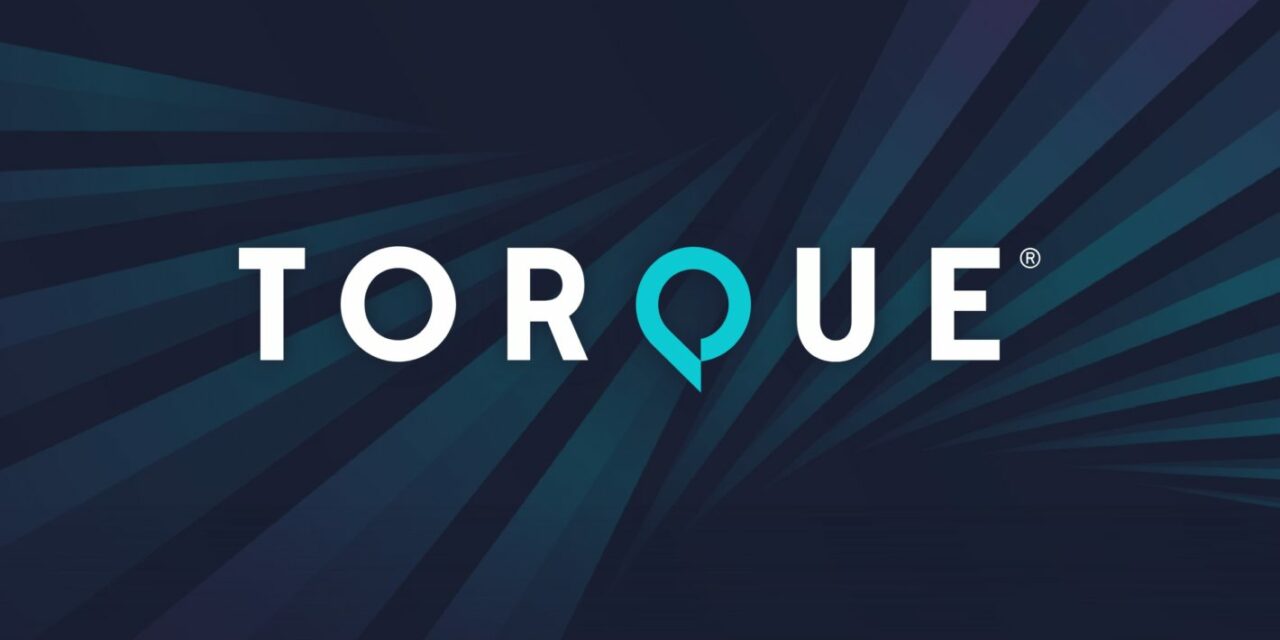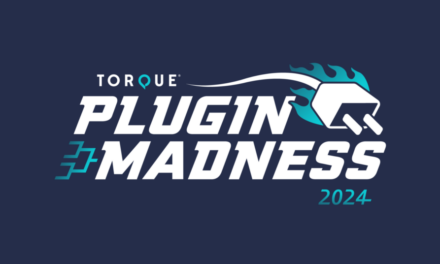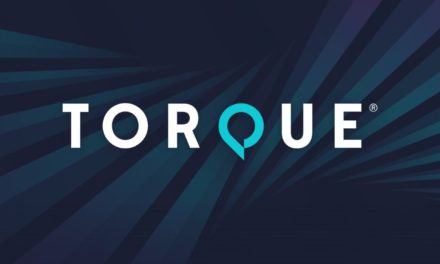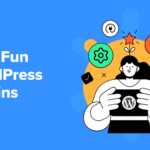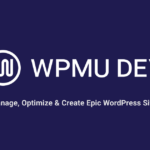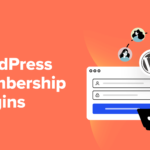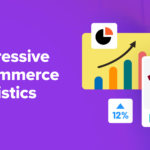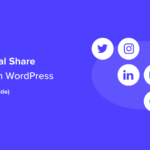Welcome to Press This, the WordPress community podcast from WMR. Each episode features guests from around the community and discussions of the largest issues facing WordPress developers. The following is a transcription of the original recording.
Powered by RedCircle
Doc Pop: You’re listening to Press This, a WordPress community podcast on WMR. Each week, we spotlight members of the WordPress community. I’m your host, Doc Pop, I support the WordPress community through my role at WP Engine and my contributions on Torquemag.io. You can subscribe to Press This on RedCircle, iTunes, Spotify, or your favorite podcasting app. You can also download the episodes directly from WMR.fm.
Now, we have a lot of great conversations with WordPressers on Press This. One of the things we don’t talk about often is what it’s like for educators to teach WordPress and what lessons those educators might have figured out or opinions they might have on how WordPress can be improved to make it more accessible to a lay audience.
So today I’m going to be talking to Nyasha Green, a LinkedIn Learning Instructor, a full stack developer, a WordPress Core Contributor, and a Co-rep of the WordPress Marketing Team. We’re going to be talking about Nyasha’s newest LinkedIn Learning class, all about how to build custom WordPress blocks, which I think is a blockbuster topic, bam, blockbuster right out the gate, coming strong with the puns. Nyasha, how are you doing today?
Nyasha Green: I’m doing well. How are you doing Doc?
Doc Pop: I’m doing well. Thanks for asking. Nyasha, why don’t you tell us how you got into WordPress? And then we’ll talk about your LinkedIn Learning course.
Nyasha Green: Yes. So years ago now, I can’t believe it’s been so long, I was in insurance. I was a saleswoman or salesperson, and I really did not like it. I had been experimenting with coding on and off, and I decided that I needed a full career change. So I learned coding. I did a bootcamp, or it was longer than a bootcamp.
I did a program at a community college and I learned how to code and PHP was one of the languages I learned, and once I learned, I was like, what am I going to do with this? Around that time I met Shambi Broome and Kenneth Elliot, my two mentors. And Shambi had a, she still has a WordPress business, where she builds websites, but also she teaches girls how to code. And she said, would you like to be my intern and I’ll teach you how to use WordPress?
At the time I thought WordPress was for blogging. Like, I had a WordPress blog in college that was pretty embarrassing. I hope it’s gone now. And so, I didn’t know you could build websites with WordPress. And she was like, yeah, I’ll teach you. So she taught me WordPress. I learned using my PHP skills to get into WordPress through her. And I did it part-time for a really long time. My main coding was database programming for the State of South Carolina. And then I got this good opportunity to go full time with my company that would eventually become MasterWP. And that’s how I got into WordPress development.
Doc Pop: Nice. So you got started at community college. You learned one stack, then you learned another stack and you learned a couple more, I guess, I really don’t know, but I’m assuming that’s how full stacks work, but now you’re teaching a class. Is it anything like the class that got you into PHP coding or is your class totally different? Is teaching WordPress totally different than the sort of classes that you took in college?
Nyasha Green: Hmm, that’s a good question. To me it’s totally different, but as you asked that, I’m actually thinking of just different similarities in the courses. But, overall it’s completely different, because WordPress, you’re not really, you can teach a WordPress course and it not have anything to do with coding, which, Allie Nimmons, who is a WordPress LinkedIn Learning instructor as well, has a really great course on an introduction to WordPress. And it’s getting in and it’s learning the WordPress ecosystem and it’s really, really good. And Ali is not a coder, but that course is for everybody. I took the course and I thought it was great.
So with my course, I wanted to approach it as, yes, I’m going to be teaching code because there are coding aspects, but I want to teach non-code as well because there are people who do not code and they use WordPress and there are developers who are talented coders that do not know how to use WordPress either. So I wanted to reach as many different people as possible.
Doc Pop: I like to imagine there’s an intro to WordPress workshop somewhere out there that’s, Capital P, Dang It! Chapter one, make sure to capitalize the letter P in WordPress.
I was wondering, Nyasha, how you decided to focus on blocks for your LinkedIn Learning class. Was that something LinkedIn Learning suggested or was that your own idea?
Nyasha Green: That was actually something I suggested. When I interviewed with them, they asked me if I would I be interested in teaching and I did research. I took a look into see what they needed, and they needed quite a few courses that needed updating and they didn’t have a block course at all. They had like a block theme course, but nothing really about blocks.
So I said, Hey, why don’t I get a block course out here? I see people talking about it all the time, how everybody’s like, using blocks. This is how we use blocks. This is how you do this, this is how you do that. But there’s nothing really to teach them. There were no beginner courses anywhere. So I thought it would be a great opportunity for me to take advantage of one, one thing the market was lacking, and two, just something that would benefit a lot of people.
Doc Pop: You mentioned there’s other LinkedIn Learning instructors that are teaching WordPress, and I assume that blocks was maybe one of the available slots that they haven’t started focusing on yet. What are some of the other categories that WordPress instructors might focus on? What are some of the noteworthy categories like SEO, or maybe that’s too small, but what are some of the different topics and potential for WordPress education there?
Nyasha Green: Those are a few. There’s courses on APIs, WordPress, APIs. There are courses on doing eCommerce sites like how to build one. Actually, Allie Nimmons just released one on that as well. There are. What are some other ones? Marketing, so another non-coding WordPress course. They’re very broad and very vague, and they’re vague and broad enough where you can’t come in even though there’s other WordPress teachers, you can have your own lane. So that was something I was worried about, but then they reassured me like, Hey, no, it’s, it’s plenty of dessert for everybody. So that was good.
Doc Pop: Now, this is a broad question, and I think after our break, we’re going to come back and talk about the lessons you learned while teaching,
Nyasha Green: Mm-Hmm.
Doc Pop: But for now, I’m curious about how you choose the level of education that you want to be giving. For instance, okay, I’m going to bring this back to yo-yoing, because I was a professional yo-yoer once, and I guess I can never not bring that up in conversation, but I wrote a book, a trick book for yo-yoing, and in there, I had to decide where I was going to start that education. Was I going to assume that the reader had never thrown a yo-yo before or that they were using a yo-yo that only goes up and down and doesn’t sleep, or was I going to assume that they maybe were quickly going to move up to intermediate and had a yo-yo that could sleep, right? I had to make this decision when I was writing the book and it was a little tough to figure out which voice I was going to use for educating them. So bringing this back to WordPress, when you are doing WordPress tutorials, do you assume that they already know JSON or PHP, or do you try teaching them the bits that they do need to know in order to move through the class?
Nyasha Green: I start from the basics. I want to create something, even if they don’t know anything. I think that’s a big issue within the WordPress learning ecosystem. There’s this assumption that you know a lot of things already and that you’re coming to this course just to learn one specific thing. And I mean, that’s kind of true, but that’s also the issue.
If I wanted to learn block building, I would have to go to several different resources because they only specify one thing. And that was something I didn’t want to happen with my course. That was actually something that my producer brought up as well. He was like reading through, because we write our own courses, you have to completely write it yourself, your script that you say. And he was like, you know, this is good. You have how to set up a WordPress environment, you have all the programs we need to download. You teach people how to, you know, install node and things like that. He was like, but when do we get to building the block? And I told him, I was like, if you don’t know how to set up an environment, how are you gonna build a block if you don’t know how to run node? NPM, how are you going to compile the changes if you don’t know? It’s like, it’s so many things we skip past because we’re assuming people know this, and that was just an issue for me when I was learning WordPress. Yes, I had like a mentor at first, but most of the WordPress development I’ve learned is having to scan YouTube and Google and Stack Overflow, and I’ve had to learn from people’s mistakes. That, to me, does not make the best learning environment.
And trial by fire and WordPress runs people off. They don’t want to get burned like that. So I was like, no, I’m gonna start from the basics. If you don’t know anything about WordPress, you can come on to this course and I’m gonna teach you how to build a block from scratch, and that’s how I’m going to approach everything.
I don’t want you to have to take 10 courses to get to mine. You’re probably not gonna want to take mine after the first two or three.
Doc Pop: Well, you know what, Nyasha, we are going to take a quick break, and when we come back, we’re going to pick up and I think we’re going to talk about how you decided to structure your class. But I really want to get into the difficulties that you might’ve found and maybe some solutions that you found while teaching WordPress.
So stay tuned. We’ll be right back for more Press This after a short break.
Doc Pop: Welcome back to Press This, a WordPress community podcast on WMR. I’m your host, Doc, Pop. Today, I’m talking to Nyasha Green, a LinkedIn Learning instructor, whose newest course, An Introduction to Custom Block Building, is available on linkedin.com. Now, before the break, we were talking about, how far back do you go when you’re teaching someone a skill?
Do you teach them from the very beginning or do you assume that they have certain knowledge, and Nyasha, looking at your course’s structure, it looks like you’ve got that intro to WordPress blocks and that’s maybe like five or 10 minutes or so. And then you’ve got another five or 10 minutes about setting up your development environment. And then you get into custom block building without code.
So you do teach how to set up environments and things like that. And then the next section is custom block building with code. So it looks like you have all the chapters for people to learn what they need to know.
Can you talk a little bit about how the course is going now that it’s out in the wild? Have you gotten any feedback on, it? I see here you have 4.9 stars out of five on LinkedIn, but have you come up with any ideas of things you might change if you were to do another course like this?
Nyasha Green: Yeah. So most of my feedback was people want me to do harder blocks, more complicated blocks, like dynamic blocks. And I thought that was funny. When I was writing the course, I was like I hope this is not too basic, but I was like, I really want it to be for beginners. But people all over have taken it, and even people who already know how to build blocks and it’s still been overall good feedback. People are saying, well, you know, you explained things to me about Gutenberg I didn’t really know before. So that’s really great and it makes things make a lot of sense.
So my biggest feedback is to make it harder, which is funny, I didn’t think my first official teaching course would be harder, harder, make it harder. But I took that as a good thing because it’s like I taught in such a great way that they, you know, they completely understood everything. Nobody has said this has been too difficult. So yeah, I’ve been really happy about that. And I hope I can make the next course not difficult, but more challenging for learners.
Doc Pop: Now, I’ve been in the WordPress space for a long time as a blogger, not as a coder. But one of the things that I’ve heard a lot recently is how much harder it is for web developers to use WordPress, the web developers who have been working on WordPress for a long time are saying now it. is more difficult to build on.
You can build more powerful things with Full Site Editing, but the learning curve is harder. So Nyasha, I’m wondering what your experience and feelings are about that.
Nyasha Green: I have mixed feelings about that because one, a little thing about my background is I came in when Gutenberg was introduced a little bit after it was first introduced. So people were saying the same thing then. And for me, I had nothing to go off of. I, of course, I dealt with sites that used the Classic Editor because you know, Gutenberg was new, but most of my learning was like, Hey, you need to learn Gutenberg.
So I was like, okay. I personally, again, I’m biased. I think, I don’t think it’s harder for new people to come in and use it. I think it’s the opposite. I think it’s way easier, but that’s because I have been using Full Site Editing a lot. I think Full Site Editing is a game changer. And to get people who were afraid of WordPress to come in and use it, I think that’s it. As far as existing people, I agree that it is way harder to make tweaks now. Oh my goodness. Using Full Site Editing again, the code doesn’t live in the files. Most of it it lives on the database. And I feel like in WordPress, especially some of these agencies, so they want you to be a PHP developer or React developer, and now you might soon have to be a database developer. Why would I work if I had all this, I was this talented, why would I work for a small agency? Why wouldn’t I go out there and either start my own business or go after the big money companies? If I have to know all of this, and so I get it to that extent, it seems like, you know, people who have been doing PHP for awhile and now they have to learn a high-level JavaScript, which React is, it’s a higher level JavaScript.
It’s an issue and I get that. My only thing is, I felt like that this whole time. I felt like the technology is constantly changing, not just in WordPress but everywhere, and you have to keep learning or you’ll get left behind. And that’s sad and it’s unfortunate, but I feel like a lot of developers are dealing with this for the first time, not where people are asking them to change, where they have to change if they want to use the latest stuff.
And it’s, it’s unfortunate because a lot of people don’t like change, but. I don’t know, I’m all down for it. I’m a lifelong learner. I’ll jump into it, but I definitely feel for ’em, and again, I think that’s why it’s so important for us to teach the basics, because if you’re a developer who’s just been learning trial by error or just learning in pockets where you can, it’s gonna be really hard to jump into these new things and discover.
You have to go back to your basics. Why not start there? Why don’t we start people there and keep it there?
Doc Pop: It is interesting that all iOS developers and other developers that I know, they’re expected to learn new stuff all the time. And they’ve just gotten really good at being able to look up things that they need to know. And that’s just part of their workflow is learning or being able to ask the questions or know how to ask the questions and find the answers they need.
So when we talk about WordPress, I sort of feel like a lot of the WordPress developers maybe are experiencing this for the first time, like they’ve been using their skills for a very long time, and this is the first time that they’ve had to learn a new set of skills where other developers are just expected to always be learning all the time.
Nyasha Green: Yeah.
Doc Pop: But do you have to be a master at all of these tools, or can you get by just using a little Stack Overflow to answer a few questions every now and then?
Nyasha Green: It depends on who you are. Most people can, they can use Stack Overflow. They don’t have to master React at this point. Me, I can’t. I have to know why this is happening. I’ve been learning well, I learned React in relation to WordPress. That’s how I was able to get more into learning blocks and segue in a little bit, there just aren’t a lot of resources for learning this stuff, and that’s why people are so frustrated.
It’s hard. I don’t care if people are like, well, if you do this, yes, we have learn. Learning goes to a point and that’s it. These agencies are not asking you to do, in my opinion, the basics of learning. They’re asking you to go deeper and it’s frustrating, again because there are no resources. They’re asking you to basically spin up things. For me to do these, this miracle-working that I’m being asked for, I need to know everything about it. So after I did my course, I actually started learning React. Also, I learned React years ago, but I didn’t retain the knowledge. I didn’t keep it.
That’s not the stack I went with. So I started learning React again and it made things make so much sense for me. So yes and no. There are people out there. Okay, I just need to know a little bit of this, a little bit of that. But like, people like me, I need a refresher on everything.
And I know that seems like a lot. I’m not gonna retain everything, but if I know why I can, I can get to the, you know how and the actual work.
Doc Pop: And on that note, your first class is live now. It’s about blocks. And you got feedback saying that one thing people were hoping for was some more advanced sections and tutorials. So real quickly, what would your next class be? Do you already have something in mind or something you’re working on?
Nyasha Green: So I’m actually, I just signed for a new course recently. So I do have a new course that’ll be coming out this year. It’s actually gonna be on Full Site Editing, building a site from scratch.
So I’m gonna teach people how to get into Full Site Editing. Again, this is very new and I mean, the last two themes are Full Site Editing, well, core themes are Full Site Editing themes and people are very scared and they don’t want to jump into it. And I want to be that person to hold your hand and say, we hop into this. Full Site Editing is new, so it won’t be years before we get a basic course on it. I’m going to do it right now for everybody.
So definitely, of course, on Full Site Editing also, if my introduction to custom block building course does well, I will do a harder course and I will get into more dynamic block building and things like that. So those would be two of the courses that I would do, or one I’m going to do, one I hope to do.
Doc Pop: Nice. Well, we’re going to take a quick break. And when we come back, we’re going to wrap up our conversation with Nyasha Green. So stay tuned for more Press This after a short break.
Doc Pop: Welcome back to Press This, a WordPress community podcast. Today, we’re talking to Nyasha Green about her LinkedIn Learning course, An Introduction to Custom Block Building, and Nyasha just told us about another course that’s in the works and it’s going to be coming soon to linkedin.com.
We talked a little bit about the experience you had while teaching, and the way you built your course and how you decided to teach what fundamentals people may need to know. And I guess what I wanted to know is going back to what inspired you in terms of making your course. One of the things that you said that I thought was really interesting is that there’s not a lot of tutorials out there for people building custom blocks.
And I was hoping you could talk a little bit more about some of the courses that are out there and how they might’ve inspired you. There’s room to talk about learn.wordpress.org. I’m sure they have some tutorials. Let’s just hear your thoughts on what else is out there.
Nyasha Green: Yeah, so Learn does have a good, if they have a, a basically starter instruction course, or they have resources that show you how to start up a block that’s actually how I started getting into using the Create Block tool. It basically scaffolds a block for you and you could just go in there and actually make your changes and customize it to your own block. Prior to that, I was going in and like, all right, let me create a new folder. This is Nyasha’s Block that makes letters bigger. And then let me create the JavaScript file in here. Let me create this directory. All right, let me make sure I INQ my SaaS in here. And it’s like the Create Block tool takes care of all of that.
It cuts so much time off of it. And I would’ve never found that if it wasn’t for Learn. So that learning is great for shortcuts and you know, little things that make your process a little faster. And I also teach how to use that tool in my course. So, definitely, if you take the course, you’ll have access to that.
There are more advanced courses out there. Aurooba Ahmed does a really good one and Brian Cords, I used to work with them. They’re awesome and they do a lot of block building courses and they speak about it. So, those are some good ones as well. And then if you go there are different hosting companies. I think Kinsta had one just about dabbling in blocks. So different hosting companies, different WordPress companies, they have them. You know, the only thing with me, again, they’re kind of, I feel like you have to go to different ones to get different things, but that’s fine if you know where to go. So yeah, there are the resources out there and if you want to build harder blocks right now, before I come out with my course, I definitely say check them out.
Doc Pop: One of our upcoming guests on Press This is going to be Jonathan Bossenger, who is part of the learn.wordpress.org group. If you had anything you’d like to ask Jonathan, what question would that be?
Nyasha Green: Man, I DM Jonathan all the time, so. Hmm. Yeah. I’m going to ask him. And he’s so helpful and kind. I don’t know. Jonathan does a lot and he actually does videos too. If you wanna learn blocks, because I’m a visual learner. That’s another issue that I saw and I was glad to do a course on. I’m a visual learner. I learn best by courses. That’s why I have YouTube Premium and, and Udemy. I can’t just go through documentation. It’s not me. I’m sorry if that makes me not a good developer or a real developer. I don’t care. But I need visual. Jonathan does a really great job of doing videos. I guess I would only say is when is he gonna make more videos? Because his videos are awesome. That would be my question to Jonathan.
Doc Pop: And on that note, Nyasha, can you tell us how people can find you and follow what you’re working on now?
Nyasha Green: Yeah, so my website is my first and last name, nyashagreen.com. So you can reach me there, you can check out some projects I’ve done. You can check out podcasts, places I’ve been, places I’m going. Most people can also follow me on Twitter or X, I hate calling it that, but. here we are. It’s NY the Creator. I do build in public on there as well, so I’m actually making custom blocks for a big website I’m going to launch soon. It’s my family tree website and I’m very excited to launch that. So if you wanna watch me build in public, sometimes you can catch me on Twitter/X and also LinkedIn. I do some building public on LinkedIn as well.
That’s where you can find out the latest about my courses. And you can just connect with me and we can see if we can find each other jobs.
Doc Pop: Awesome. So you’re also looking for full-time work now, right?
Nyasha Green: I am, I’m looking for full-time or part-time work.
Doc Pop: Right on. And hopefully, we’ll see more LinkedIn Learning courses from you later this year. And, people can follow you on your website or on Twitter. That’s it for this episode of Press This, the WordPress community podcast. We’re hoping next week to have Jonathan Bossenger on to talk about learn.wordpress.org, so stay tuned for that if you want to hear more about WordPress education.
Thanks for listening to Press This, a WordPress community podcast on WMR. You can follow my adventures on Twitter. We don’t tweet that often, but we are on there, @theTorqueMag, that’s at the Torque Mag, but really the best way to follow us online is TorqueMag.io. That’s where you can find transcribed versions of these podcasts, as well as other tutorials and news about upcoming WordPress events.
Check out TorqueMag.io for those transcriptions and much more. You can also subscribe to
Press This on RedCircle, iTunes, Spotify, or your favorite podcasting app. You can also download the episodes directly from WMR.fm. Again, I’m your host. Dr. Popular, I support the WordPress community through my role at WP Engine, and I love spotlighting members of that community each and every week on Press This.

